By Bruno Takahashi & Iasmim Amiden dos Santos
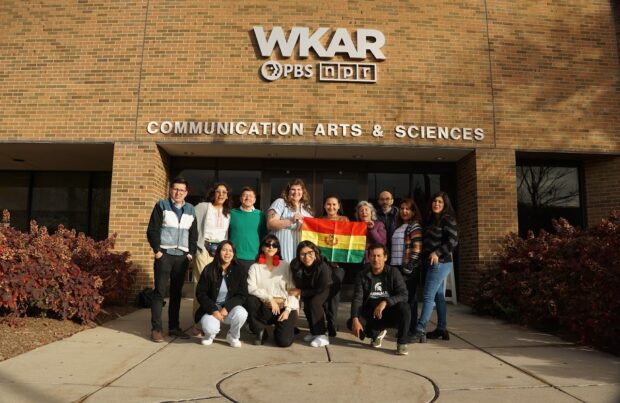
In a bid to tackle pressing environmental issues in South America, 12 Bolivian journalists gathered at Michigan State University’s Knight Center for Environmental Journalism from October 28 to November 1. The workshop, “Innovations in Environmental Journalism for a Complex World,” aimed to equip reporters with new skills and insights to enhance environmental coverage in Bolivia and across the region.
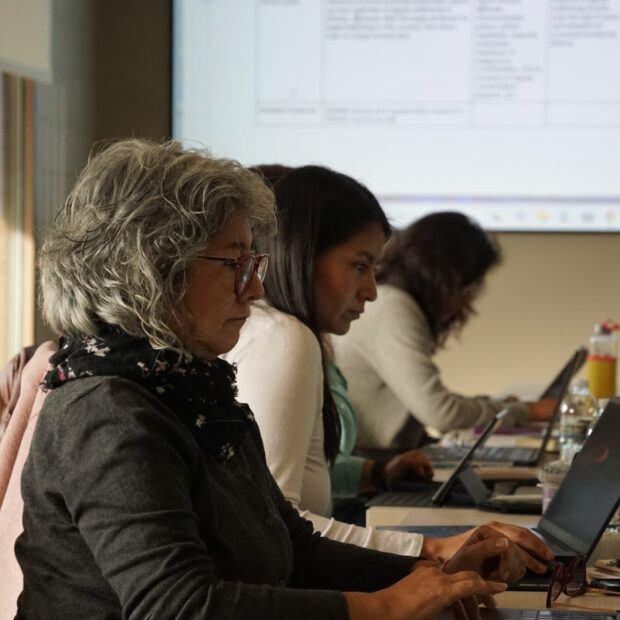
Erika Bayá Santos, Red Ambiental de Información during the workshop
Journalists participated in sessions covering decolonial journalism, the impact of elections and foreign policy on environmental outcomes, extractive industries, coupled human-nature systems, Latin American politics and the growing influence of artificial intelligence (AI) in journalism.
The workshop brought together journalists from diverse Bolivian outlets, including digital platforms like La Brava and La Región and established broadcasters like Telemundo.
The week-long program featured an intensive curriculum designed to strengthen core journalism principles and explore critical environmental topics. Throughout the week, participants crafted story ideas, explored funding opportunities and practiced mobile broadcasting techniques.
One participant, Carmen Lujan from Agencia Fides, remarked on the AI session: “I found it interesting that, when talking about artificial intelligence, they reminded us that it’s human beings who truly make stories meaningful—not machines. And that’s exactly what environmental journalism needs in our context.”
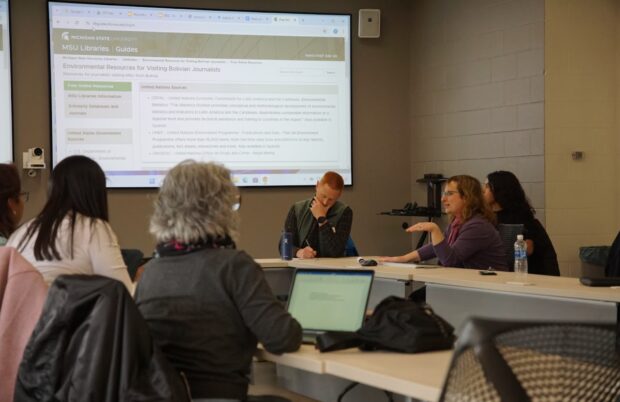
Workshop participants with MSU Library librarian
Guest speakers included MSU faculty experts like political science Professor Matt Grossman, Professor Jack Liu, who holds the Rachel Carson Chair in Sustainability, and forestry Associate Professor Lauren Cooper. Their insights anchored discussions on complex environmental challenges and encouraged participants to think critically about sustainable reporting practices.
A feature of the workshop was a field trip to Detroit, where journalists visited General Motors’ facilities and the offices of Automotive News. These visits offered an inside look at cutting-edge electric vehicle technologies and lithium-ion battery production.
Given Bolivia’s extensive lithium reserves, journalists found the session especially relevant, as Bolivia’s lithium production has lagged other countries.
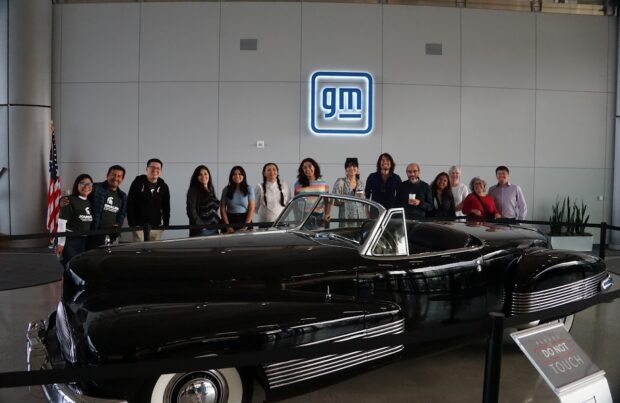
Workshop participants at General Motors facilities
Soledad Gutierrez from the Red Ambiental de Información commented on the experience: “The topic of electric vehicles was very important. I believe we will see this transition, perhaps not with the same intensity as elsewhere, but we are following what is happening in Bolivia. This session gave us a more holistic view of the sector and its ongoing evolution.”
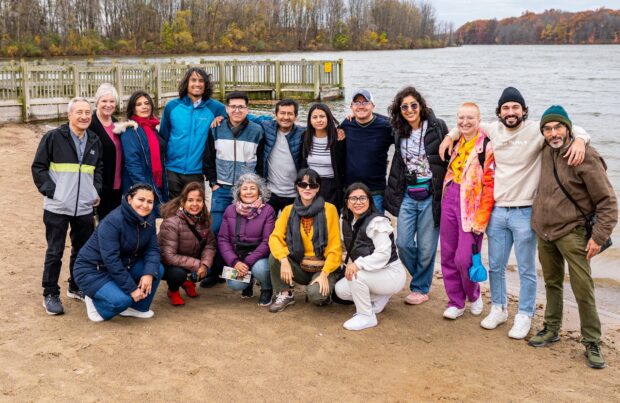
Workshop participants at Sleepy Hollow State Park
To round out their field experiences, the group spent a morning at Sleepy Hollow State Park, where they engaged with Michigan Department of Natural Resources experts on the importance of public land management in conservation efforts.
This workshop is part of a broader Knight Center initiative to bolster environmental reporting in Bolivia. Research Director Bruno Takahashi, Knight Chair Eric Freedman and doctoral students Iasmim Amiden dos Santos and Gisele Neuls Souza conducted four workshops in Bolivia’s La Paz and Santa Cruz de la Sierra earlier this year.
A research project is also currently underway exploring journalistic practices in Bolivia and Peru.
Supported by the U.S. Embassy in La Paz and in partnership with the Fundación para el Periodismo, this project underscores the Knight Center’s commitment to empowering journalists around the world with the tools needed to address complex environmental issues.
Photo credits: Iasmim Amiden dos Santos, Donte Smith and Bruno Takahashi
